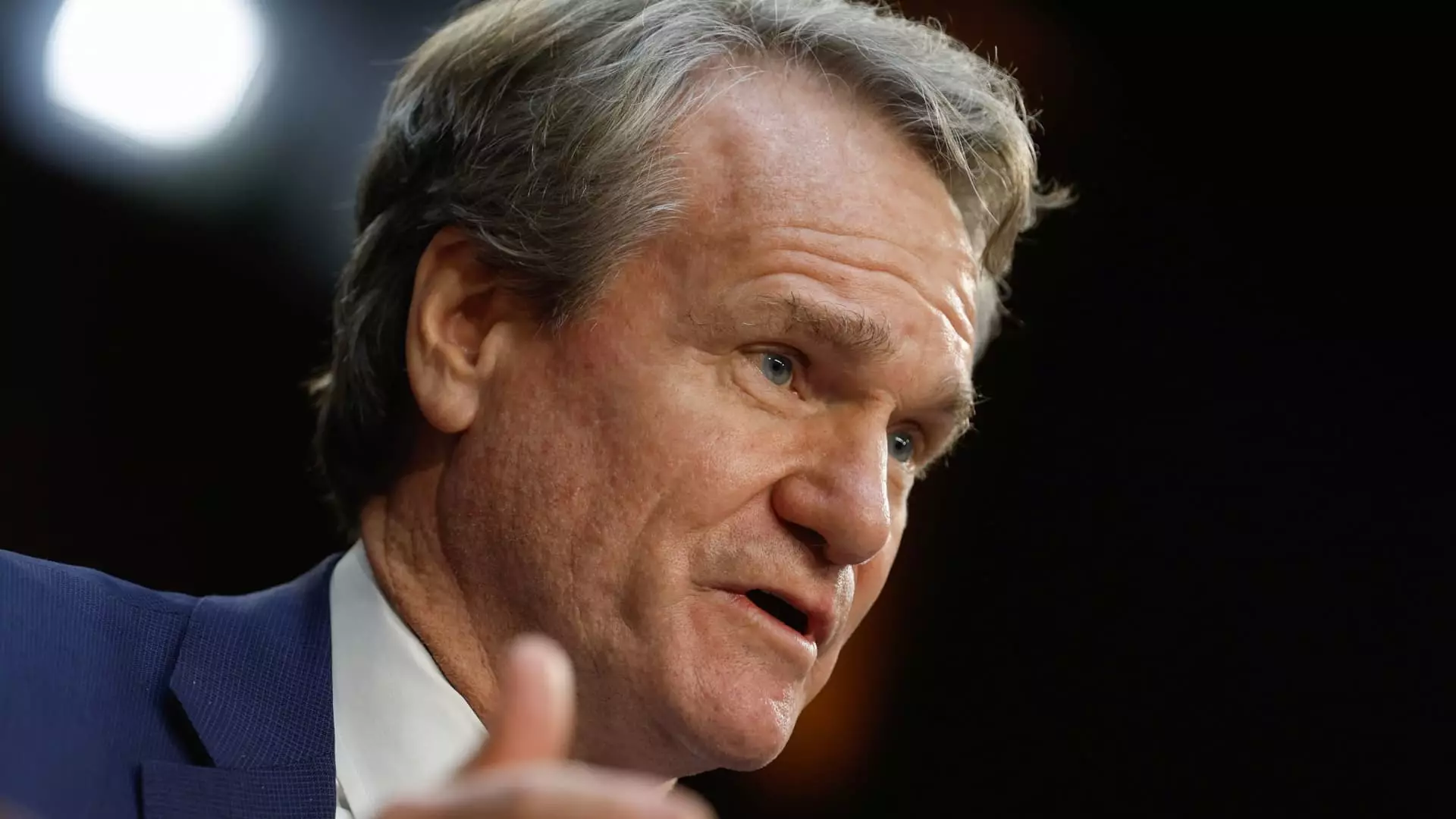In a recent financial conference, Bank of America CEO Brian Moynihan highlighted a noticeable trend among U.S. consumers and businesses. Both groups have been exercising caution when it comes to spending, largely due to the impact of elevated inflation and interest rates. This caution has led to a significant slowdown in the rate of purchases made by households and small- to medium-sized businesses for a variety of goods and services.
Decline in Consumer Spending
Moynihan revealed that consumer spending via card payments, checks, and ATM withdrawals has only grown by approximately 3.5% this year, reaching around $4 trillion. This represents a sharp decline from the nearly 10% growth rate observed in May 2023. The slowdown in consumer spending has been evident since last summer and is reflective of the challenging economic environment experienced from 2016 through 2018.
The persistence of inflation and higher borrowing costs following the Federal Reserve's efforts to control inflation through rate hikes have significantly influenced consumer behavior. Many consumers are facing increased prices for goods and services, leading them to adjust their spending habits. For example, Moynihan noted that food shoppers are visiting more store locations in search of deals, indicating a shift towards more cost-conscious purchasing decisions.
While overall consumer spending has seen a tepid growth, certain sectors like travel and entertainment have continued to perform well. However, other areas such as rent payments have experienced a slowdown in growth. Moynihan emphasized the importance of keeping the consumer engaged in the U.S. economy, given their substantial contribution to economic activity.
In addition to consumers, small- and medium-sized businesses have also felt the effects of the cautious spending environment. Business owners are reported to be more reluctant to hire additional staff, invest in new equipment, or make software purchases at the same pace as before. This shift in business behavior has implications for overall economic growth and employment rates.
Looking ahead, Bank of America economists anticipate that inflation will take until the end of the next year to stabilize. Furthermore, they predict that the Federal Reserve will begin lowering interest rates later this year to support economic growth. Moynihan believes that the U.S. economy is likely to grow at around a 2% level, thus avoiding a recession despite the current challenges.
The impact of elevated inflation and interest rates on consumer spending cannot be understated. Both consumers and businesses are proceeding cautiously in their financial decisions, reflecting a broader trend of economic uncertainty. As policymakers and financial institutions work towards addressing these challenges, it remains crucial to monitor these trends closely and adapt to the changing economic landscape.

